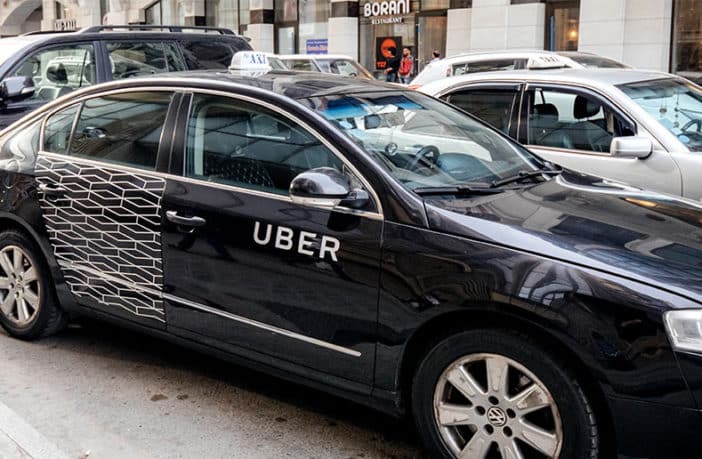Prague was not able to enforce its amendments to the regulation of taxis in the Road Act amendment. Metropolis did not succeed in imposing a test of knowledge of the rights and obligations towards the customer that was to replace the expired mandatory topography test. Nor did the legislators hear out their calling for more possibilities to check work permits of foreign drivers.
The final form of legislation that was submitted from the Senate to the Chamber of Deputies is mainly acknowledged by “alternative” carriers headed by the global platforms Uber and Bolt. Association of classic taxi drivers are not satisfied. However, the Czech company Liftago has reservations as well, which, like Uber and Bolt, uses the mobile application to order rides.
„The taxi amendment is a step towards the modernization of both digital and classic taxi services. However, the number of commercial drivers has doubled in the last year and a half in Prague alone, and the amendment, due to the strong lobbying of foreign companies, has removed the possibility for cities to deal with the transportation consequences of this problem. We can expect another influx of foreign drivers on Polish visas or another ‘lease’ of app accounts to fake drivers as before,” warns Liftago director Ondřej Krátký. He has also added that the amendment did not address the extraordinary growth of digital services. “Just like Airbnb, which has raised rental prices and depopulated city centers, modern western taxis are already clogging up the traffic because they are priced competitively to the public transportation,” says Krátký.
Representatives of “alternative taxis”, on the other hand, described the proposals of the municipality and some “Prague” senators as an additional and unnecessary bureaucratic burden.
„The fact that Prague is no longer mentioned in the guidebooks as a taxi wild west, where tourists are scammed, is mainly due to services such as Uber and Bolt. The municipality and politicians have been trying to change the situation for years and have been unable to do anything about it. It was only when people realized that they could use other services than dispatching or street taxis, ”said Ondřej Pirohanič, member of the preparatory committee of the Association of Alternative Taxi Drivers.
Uzbek Passport, Ukrainian Driver’s License
The so-called Taxi team of Prague police officers has recently detained a driver of an “alternative taxi service” who had a car with a Polish license plate, a Ukrainian driving license and was staying in the Czech Republic with an Uzbek passport and a Polish visa.
„He had considered the fact that he does not have any necessary permits for the operation of taxi services in the territory of Prague pointless and he never heard of the topography tests, ” commented Irena Seifertová, spokesman of the Municipal Police.
In this context, Senator Václav Hampl has tried to incorporate a condition into the amendment, that foreigners would have to attach a criminal records certificate to their application for a taxi license. According to Ondřej Pirohanič, however, any new obligation would have to apply to everyone and the law should not be used to solve the problems of the Alien Police to detect people who live or work illegally.
Taxi Drivers Without Work Permits
Over the past year and a half, the Municipality has issued a “taxi” license to approximately two thousand foreigners from third countries. City officials warn that during this procedure the authority is not authorized to check the applicant´s work permits. “Subsequent inspections of these drivers have shown that many of them do not have a work permit. Some of them go on to use the license to communicate with other authorities to look legal, ”said Mayor’s Deputy Adam Scheinherr.
The main objective of the municipal proposals was to improve the conditions for customers in price supervision. “Unfortunately, the role of supply and demand has been strengthened, as the taxi is newly based on contractual transport and the customer does not have the opportunity to check the relevance of the price,” added Scheinherr.
What Will the Read Act Amendment Change?
The new wording of the Road Act aims to legally limit the transportation business using mobile applications. The amendment legalizes the process of ordering of ride through mobile applications. At the same time, the obligation to record a trip using a taximeter will end. It imposes a license and registration obligation onto drivers. For vehicles operating on the principle of application, the condition of the roof lamp is not necessary, a registration sticker is sufficient. Municipalities will not be able to regulate the color and size of cars. The topography examinations are also canceled.



